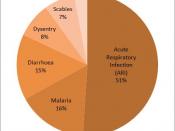Impacts of socio-cultural values on child health in Faisalabad
Abstract
Social and cultural values play an important and dynamic role in every human society. Every social and cultural value has its own customs which have significant influence on child and human health. One child dies in the country every minute from transmittable disease. Resultantly, Pakistan is facing very high child mortality rate among developing countries. The researcher is particularly interested to explore the dynamics behind social, cultural and religious ideology that cause high mortality and morbidity rate in Pakistan. Factors such as impact of cultural values on child health, child immunizations status, types of medication, and child anthropometric measurement will be explored. The universe of the present study will be comprised of Faisalabad District Punjab, Pakistan. A sample of 320 respondents will be interviewed form district through multistage sampling technique. Data will be collected through well design interview schedule. Collected information will be analyzed through SPSS.
Result will be presented in the form of M. Phil dissertation.
Key words:social and cultural values, child health, immunization and child anthropometry
Introduction
All types of culture have a unique formation of health beliefs to explain what causes of sickness, how a person be cured or treated, and who should be involved in the procedure. Western industrialized societies such as the United States, which see disease as a result of natural scientific phenomena, advocate medical treatments that combat microorganisms or use sophisticated technology to diagnose and treat disease. Some developing societies believe that illness is the result of supernatural phenomena and promote prayer or other spiritual interventions that counter the presumed disfavour of powerful forces. Cultural issues play a major role in patient compliance.
The idea of including socio-cultural factors in studying the distribution and aetiology of disease is not new. It is...


